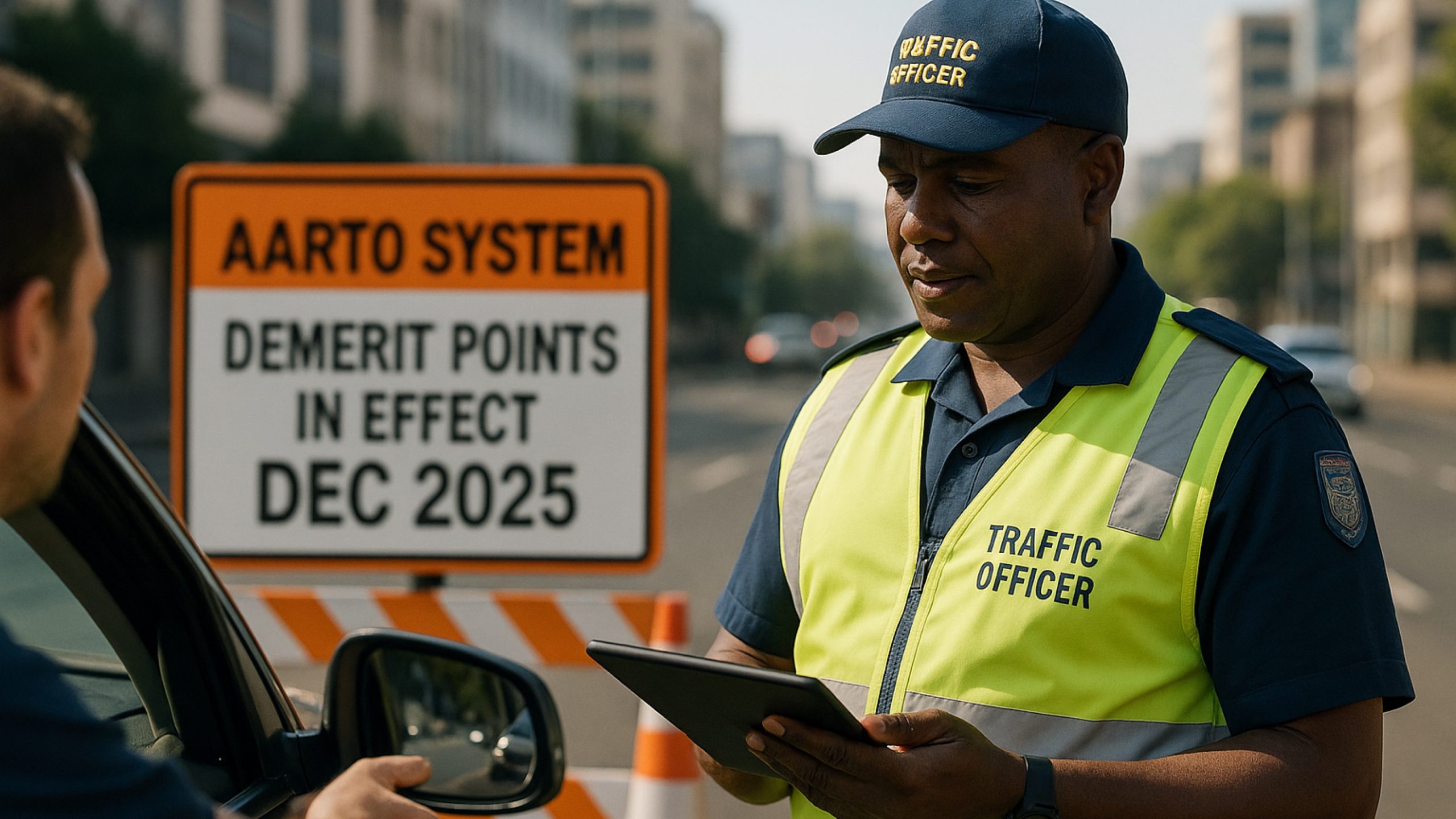The Administrative Adjudication of Road Traffic Offences (AARTO) system will enter its second phase on 1 December 2025, expanding to 144 municipalities across South Africa. This marks a significant step toward nationwide implementation of the AARTO demerit system South Africa, aimed at enhancing road safety by penalising traffic violations. Understanding how the AARTO demerit system operates will be critical for all drivers.
The system assigns demerit points to drivers for offences like speeding or running red lights. Accumulating 15 points leads to a three-month driving license suspension for every three points over the limit. Repeated suspensions could result in permanent license cancellation.
Penalty Points Enforcement in 2026
While the AARTO demerit system South Africa begins its broader rollout in December 2025, the actual application of demerit points to driver licenses will start on 1 September 2026. Each traffic violation carries a specific point value, encouraging compliance to avoid penalties. It’s crucial to adhere to the rules set forth by the AARTO demerit system.
Motorists are advised to familiarise themselves with the point system and ensure compliance with traffic laws. The phased approach allows municipalities to align systems and prepare for national enforcement.
Settle Fines Before Rollout
The Road Traffic Infringement Agency (RTIA) urges drivers to clear outstanding fines before the December rollout. Fines can be paid or contested via AARTO’s online platform or at designated centres. The RTIA plans to send reminders through SMS, email, or post to ensure awareness. Such measures are part of the AARTO demerit system strategy to ensure compliance.
Public education campaigns will accompany the rollout, informing drivers about their responsibilities and rights under the AARTO demerit system South Africa. These efforts aim to smooth the transition and promote adherence to traffic regulations.
Legal Path Cleared for Implementation
The Aarto Act faced legal challenges, but the Constitutional Court ruled in July 2023 that it is lawful, paving the way for full implementation. Pilot programs in Johannesburg and Tshwane have already tested the system, providing valuable insights for the national rollout.
The gradual expansion allows municipalities to integrate their processes, ensuring a unified approach to road safety enforcement by September 2026. The AARTO demerit system is a pivotal element in this strategy, reinforcing road safety across the nation.


